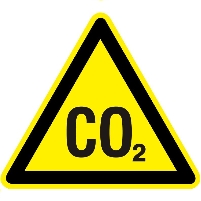Replace “Cap and Trade” with “Fee and Dividend”: James Hansen
Saturday, January 02, 2010

Solving the problem of global warming requires discarding the cap-and-trade policy currently popular with public officials and going instead with something called fee-and-dividend, says scientist James Hansen, the director of the NASA Goddard Institute for Space Studies. With cap-and-trade, the government hopes to “cap” the amount of fossil fuels available for sale, requiring businesses to trade coal or oil and in the process drive up prices to ultimately limit the output of harmful carbon dioxide into the atmosphere. Companies that want to pollute above their limit can buy pollution credits from companies that pollute less.
Hansen argues that cap-and-trade is primarily good for the energy companies “with strong lobbyists and for Congress, which would get to dole out the money collected in certificate selling, or just give away some certificates to special interests.”
With fee-and-dividend, fees are assessed on fossil fuels when they are first sold or extracted from the earth, resulting in “100% of the money collected from the fossil fuel companies” being distributed uniformly to the public.
“The fee-and-dividend approach is straightforward,” argues Hansen. “It does not require a large bureaucracy. The total amount collected each month is divided equally among all legal adult residents of the country, with half shares for children, up to two children per family. This dividend is sent electronically to bank accounts, or for people without a bank account, to their debit card.”
-Noel Brinkerhoff
How to Solve the Climate Problem (by James Hansen, The Nation)
- Top Stories
- Unusual News
- Where is the Money Going?
- Controversies
- U.S. and the World
- Appointments and Resignations
- Latest News
- Trump Orders ICE and Border Patrol to Kill More Protestors
- Trump Renames National Football League National Trump League
- Trump to Stop Deportations If…
- Trump Denounces World Series
- What If China Invaded the United States?






Comments